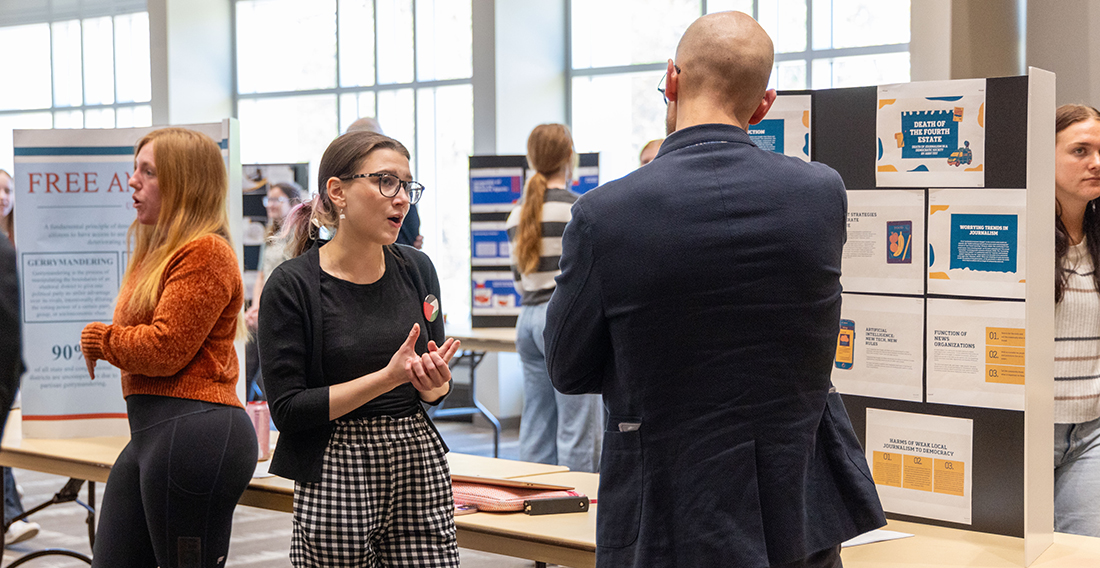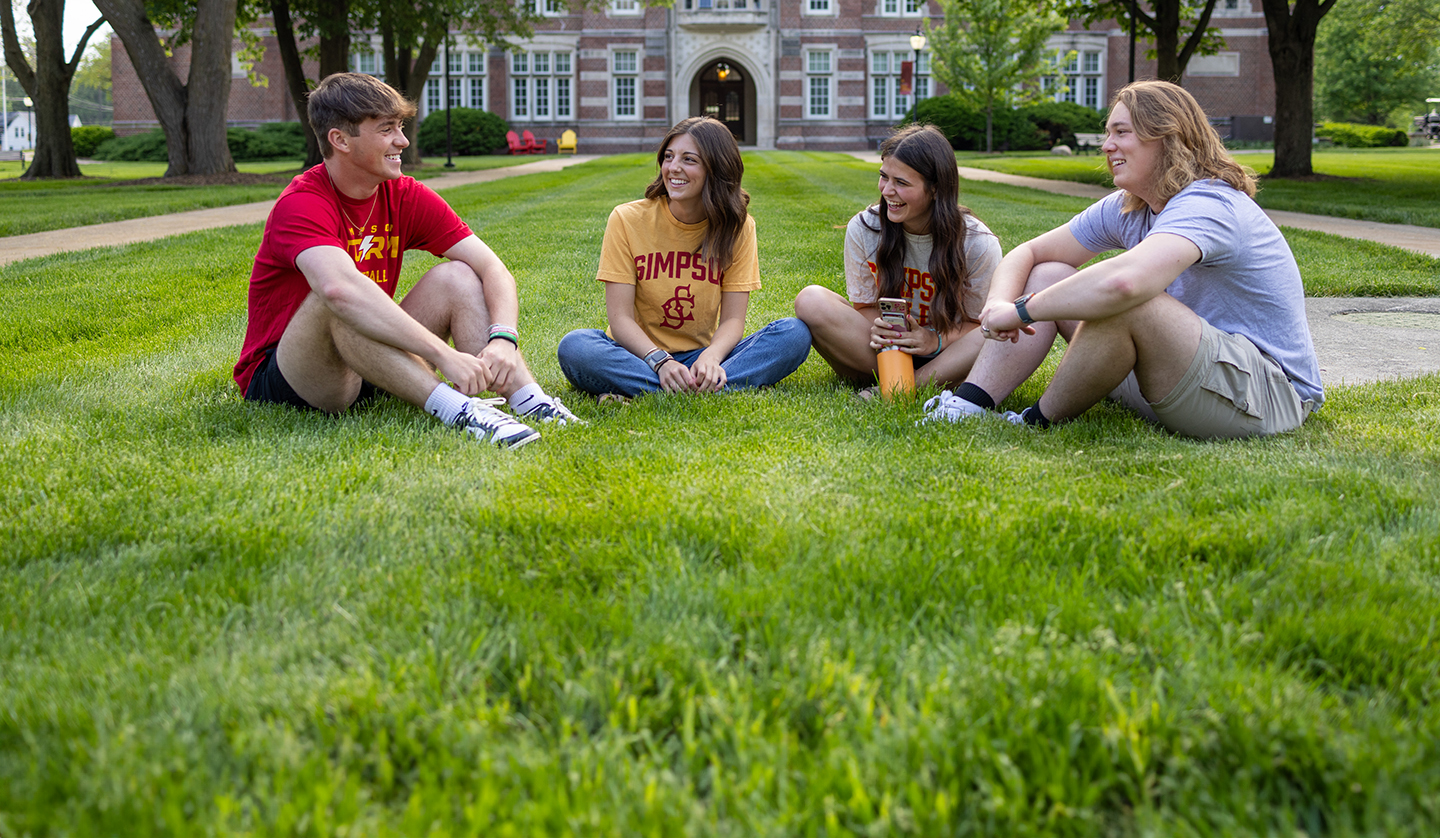Undergraduate Research and Creativity
Ideas and innovation that make a difference.

Through research and outreach, Simpson College makes a positive impact in our local community, in Iowa, and beyond.
In labs, offices, and studios across campus, our faculty members are conducting original research, creating artistic works, and contributing to important advocacy and outreach efforts. Many of them also mentor and collaborate with students as they embark on their own research projects.
At Simpson College, research, scholarship and creative work provides an opportunity for individual students or small groups of students to explore an issue of interest to them in a manner consistent with the discipline and to communicate their results to others. Projects may involve inquiry, design, creation, investigation, research, analysis, discovery, application, writing and/or performance.
Experiments done in a scientific laboratory, archival research, interviews that explore a social or political concern, data collection and analysis, and creation of an artistic work are all examples of research that can involve undergraduate students.
Most Simpson College students have an opportunity to participate in undergraduate research as part of their course work or by working on research projects outside of the classroom. Travel stipends allow students to travel to regional or national conferences to present their work. In addition, over twenty students each year get paid to participate in undergraduate research during the summer.
Every spring the Undergraduate Research Symposium hosted by Simpson College showcases the outstanding research conducted by our students.
Annual Research and Creativity Symposium
The annual Simpson College Research and Creativity Symposium (RCS) is a multi-disciplinary event that showcases outstanding student work through the presentation of papers, performances, posters and panel discussions. The symposium gives students an opportunity to share their knowledge with instructors and peers in a scholarly, supportive environment that thrives on inquisitiveness and interaction.
At Simpson College, research, scholarship and creative work provide an opportunity for individual students or small groups of students to explore an issue of interest to them in a manner consistent with the discipline and to communicate their results to others. Projects may involve inquiry, design, creation, investigation, research, analysis, discovery, application, writing and/or performance.

